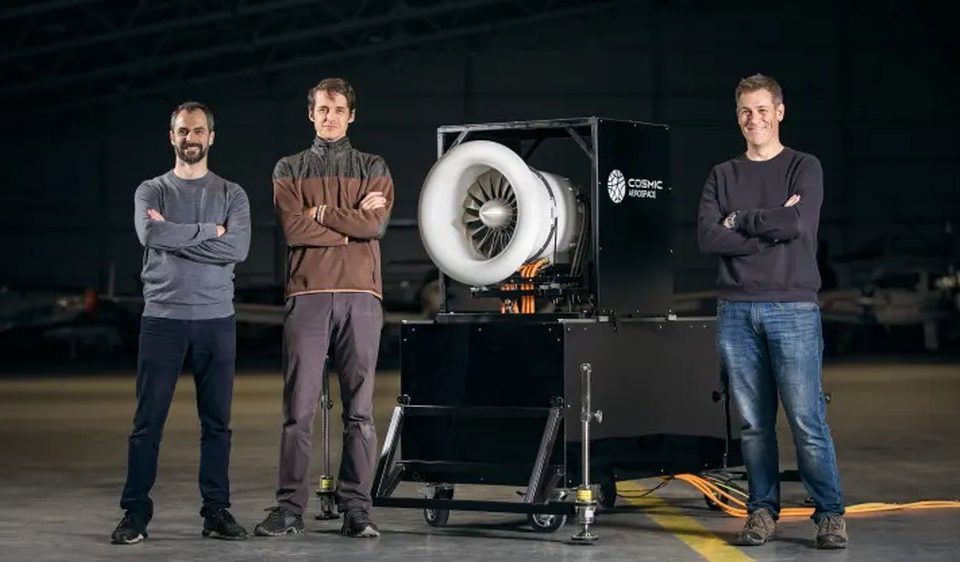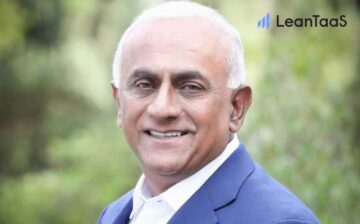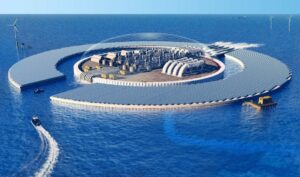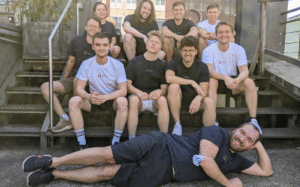
In our collective efforts to reduce our dependency on fossil fuels, companies like Tesla and a multitude of other innovative tech startup companies have made remarkable progress in the development of electric vehicle technology for electric cars and trucks. In recent years, however, a shift began as battery range improved, and tech companies ventured into the realm of air taxis and battery-powered electric vertical takeoff and landing (eVTOL) vehicles.
Despite the continued advancements, the transition to electric planes has been slower and failed to achieve mass adoption due to several challenges, including the need to gain public trust and acceptance, weight and efficiency concerns, safety certifications, high costs, payload capacity, the necessity for a comprehensive charging infrastructure, limitations in battery technology, and limited range, until now.
Enter Cosmic Aerospace, a Denver, Colorado-based aviation tech startup that is developing a fully electric plane with a flight range of 1000 kilometers (621 miles).
Unlike other sustainable aviation startups, which are mostly focused on sustainable jet fuels, hydrogen, and battery tech, Cosmic CEO Christopher Chahine said the company is primarily focused on developing improved propulsion systems with a distinctive airframe design for their fully electric plane. Chahine added that Cosmic’s goal is to reduce air pollution from regional flights.
it didn’t take long before Cosmic garnered the interest of prominent investors, securing a substantial amount of funding in their recent early-stage financing round. Cosmic has successfully raised $1.5 million in early-stage funding, with Pale Blue Dot and 50 Years venture capital leading the investment round.
Alex Teng, a partner at 50 Years, explained that his firm was particularly attracted to Cosmic due to the founder’s extensive experience in aviation. The fund is also a recognition that Cosmic is addressing a challenge that other developers of electric planes and air taxis have yet to overcome – extending beyond short-distance flights.
Before founding Cosmic, Christopher Chahine made a career shift from energy and aviation research at the von Karman Institute for Fluid Dynamics in Brussels to pursue his goal of realizing zero-emissions flight. To develop Cosmic’s inaugural plane, Chahine enlisted the expertise of Joe Wilding, former CTO of Boom Supersonic, and Marshall Gusman, a former design leader at the same supersonic jet company.
Chahine said in an interview that Cosmic’s primary mission is to significantly reduce the energy required for carrying 20 to 30 passengers up to 1,000 kilometers (over 600 miles) by 50% or more compared to traditional jet-fuel-powered planes.
Among the various climate-related concerns, Chahine’s focus on aviation stems from the fact that flights currently contribute to over 2% of all energy-related carbon emissions. Moreover, studies by the International Energy Agency indicate that aviation emissions have been increasing at a faster rate than emissions from other sources of air pollution, including road, rail, and shipping.
In addition to carbon emissions, conventional aviation also generates greenhouse gases such as nitrogen oxides (NOx), which have an impact on atmospheric composition, potentially leading to the production of ozone and methane. Chahine also highlighted the contribution of contrails, which contain water vapor and particulate matter, to global warming.
“Electric aviation has always suffered from a range problem,” Teng said, “but my average flight is over 500 miles personally. When I think about a sustainable future, I know we can’t stop flying. So figuring out aerodynamic efficiency coupled with a new kind of engine is a great approach.”
Cosmic recently achieved a significant milestone with the completion of the development of a prototype engine. According to Teng, the company is on track to accomplish its next objective of conducting the first flight with a full-scale experimental aircraft by 2026.
- SEO Powered Content & PR Distribution. Get Amplified Today.
- PlatoAiStream. Web3 Data Intelligence. Knowledge Amplified. Access Here.
- Minting the Future w Adryenn Ashley. Access Here.
- Buy and Sell Shares in PRE-IPO Companies with PREIPO®. Access Here.
- Source: https://techstartups.com/2023/05/16/cosmic-aerospace-raises-1-5-in-funding-to-develop-an-electric-plane-with-a-range-of-over-600-miles/
- :has
- :is
- $UP
- 000
- 1
- 2%
- 20
- 2026
- 30
- 50
- 50 Years
- 500
- a
- About
- acceptance
- accomplish
- According
- Achieve
- achieved
- added
- addition
- addressing
- Adoption
- advancements
- Aerospace
- agency
- AIR
- Air pollution
- aircraft
- All
- also
- always
- amount
- an
- and
- approach
- ARE
- AS
- At
- atmospheric
- attracted
- average
- aviation
- battery
- been
- before
- began
- Beyond
- Blue
- boom
- Brussels
- by
- Capacity
- capital
- carbon
- carbon emissions
- Career
- carrying
- cars
- ceo
- certifications
- challenge
- challenges
- charging
- Christopher
- Collective
- Companies
- company
- compared
- completion
- comprehensive
- Concerns
- conducting
- continued
- contribute
- contribution
- conventional
- Costs
- coupled
- CTO
- Currently
- Denver
- Dependency
- Design
- develop
- developers
- developing
- Development
- DOT
- due
- dynamics
- early stage
- efficiency
- efforts
- Electric
- electric cars
- electric vehicle
- Emissions
- energy
- Engine
- evtol
- experience
- expertise
- explained
- extending
- extensive
- Extensive Experience
- fact
- Failed
- faster
- financing
- Firm
- First
- flight
- Flights
- fluid
- Fluid dynamics
- flying
- Focus
- focused
- For
- Former
- fossil
- fossil fuels
- founders
- founding
- from
- fuels
- full-scale
- fully
- fund
- funding
- future
- Gain
- generates
- Global
- global warming
- goal
- great
- Have
- High
- Highlighted
- his
- However
- HTTPS
- hydrogen
- i
- Impact
- improved
- in
- Inaugural
- Including
- increasing
- indicate
- Infrastructure
- innovative
- Institute
- interest
- International
- Interview
- into
- investment
- investment round
- Investors
- ITS
- jpg
- Kind
- Know
- landing
- leader
- leading
- like
- limitations
- Limited
- Long
- made
- Mass
- Mass Adoption
- Matter
- methane
- milestone
- million
- Mission
- more
- Moreover
- mostly
- multitude
- my
- Need
- New
- next
- now
- nox
- objective
- of
- on
- or
- Other
- our
- out
- over
- Overcome
- particularly
- partner
- Personally
- Planes
- plato
- Plato Data Intelligence
- PlatoData
- Pollution
- potentially
- primarily
- primary
- Problem
- Production
- Progress
- prominent
- propulsion
- prototype
- public
- public trust
- pursue
- Rail
- raised
- raises
- range
- Rate
- realizing
- realm
- recent
- recently
- recognition
- reduce
- regional
- remarkable
- required
- research
- road
- round
- Safety
- Said
- same
- securing
- several
- shift
- Shipping
- significant
- significantly
- So
- Sources
- startup
- Startups
- stems
- Stop
- studies
- substantial
- Successfully
- such
- supersonic
- sustainable
- sustainable future
- Systems
- Take
- tech
- tech companies
- tech startup
- Technology
- Tesla
- than
- that
- The
- their
- think
- to
- track
- traditional
- transition
- Trucks
- Trust
- until
- various
- vehicle
- Vehicles
- venture
- venture capital
- vertical
- von
- was
- Water
- we
- weight
- when
- which
- with
- years
- yet
- zephyrnet












